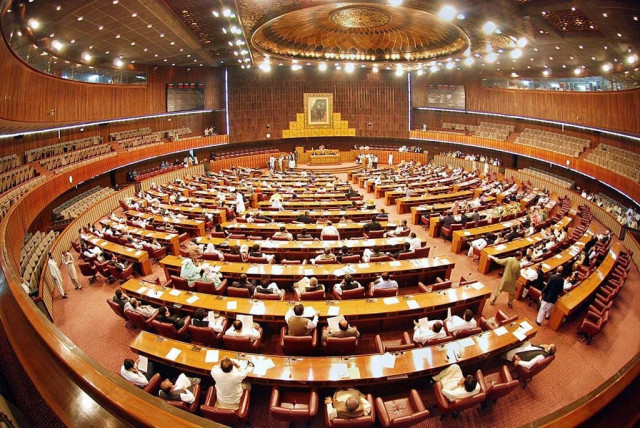Islamabad:
The legislation on a new bill – Prohibition of obscenity and vulgarity on the Digital Media Bill 2025 – is expected during the next session of the National Assembly. Presented by MNA PPP, Dr. Syeda Shahida Rehmani, the bill aims to limit obscene content online and involves penalties ranging from RS100,000 to RS1 billion.
The proposed bill defines “digital media” and “prohibited content” as including online and offline platforms, applications, social media and streaming services.
It will apply to all content in the form of images, audio, videos, multimedia, films, web series, animation sketches, dramas, songs, short videos, live emissions or visible advertisements via digital media.
The prohibited content includes sexual conversations, extramarital relations, sexual immorality, semi-naked outfit, drug use, violations of public morality, wounded religious feelings, mocking hijab, purdah or family system, ridiculing religious figures and raping the ideology of Pakistani or cultural values.
Under the bill, an authority, a board of directors and a court will be established. The violations will be the subject of an investigation by the National Cyber Crime Investigation Agency (NCCIA) and pursued under the 2016 law on the prevention of electronic crimes.
The Council will have eight members: two religious scholars, a woman and a man, two psychologists, a woman member of civil society, a legal legal expert, a media professional responsible for the seizure of prohibited content and a representative of the federal government as president.
The court will be made up of three members: a person qualified to be a judge of the High Court, a media professional and an IT expert, who will hear and decide on digital media affairs.
The council will have the power to prohibit the prohibited content, to make changes, to take measures suo motu against obscene documents and to recommend fines for violations, while the authority will act on the recommendations of the council.
The sanctions under the bill include a prison sentence of one year and a fine of 500,000 rupees for the first offense and a prison sentence of three years and a fine of 5 million rupees for the second offense. Offenses involving religion, women, children or the family system will lead to a five -year imprisonment sentence and a fine of 10 million rupees.
Digital media platforms and service providers will be required to report all the contents downloaded in Pakistan to the Board of Directors within 15 days and, after notice, block the prohibited content within 24 hours and keep the registration for three years.
50 million rupees will be imposed on the platforms for the first violation and at Rs100 million fine for the second violation. Repeated violations will lead to the cancellation of license and the blocking of services.
All crimes under this law will not be editors and not compensable. The bill should be approved by the NA after deliberation in the permanent committee concerned.
PECA, a law promulgated in 2016, was adopted by lower and superior houses, aimed at approaching cybercrime and regulating electronic communication in Pakistan. It was intended to combat online offenses such as hacking, data theft and cyberbullying. Many journalists and media organizations have raised concerns about his implications for press freedom and freedom of expression.
“The government must learn the lessons because it was used previously against the same party, which had adopted the law in a hurry,” said Mazhar Abbas, a main member of Pfuj.




